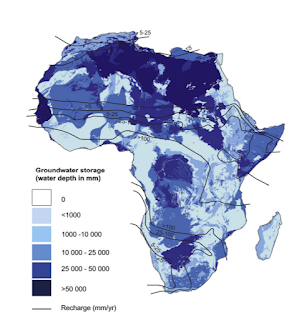An Introduction to Water and Food In Africa

Teenagers searching for clean water out of their village (globalcitizen.org)
Before diving into the development actuality and water and food insecurities in Africa, I would like to start this first blog post with a reflection upon Binyavanga Wainaina’s article “How to write about Africa”(Wainanina, 2019). In Wainaina’s article, he has adopted a rather exaggerated and sarcastic tone to criticize the conceptualizations of Africa in social media and in Western colonial countries’ lenses. Although reading the article is amusing, I felt depressed and frustrated when having a second thought about it. It just makes me wonder, in what positions the West are the ‘heroes’ and ‘saviors’ and Africa is ‘doomed’? With this question in mind, I am tempted to break the numerous stereotypes and assumptions presented in mainstream media on Africa. Moreover, I am intrigued to reveal and demonstrate to the public that Africa is a continent full of potentials. Personally, I grew up in an urban city where I do not need to worry about access to clean water and food. Recalling back to my earliest memories, the water supply in my family is available 24/7 and every meal is well-prepared by my parents. Learning the topic of water and food in Africa, the further I delve into details the more I realized how lucky I am compared to many others in the world with limited access to safe and clean water. The inequality in accessing safe and clean water is a huge gap to close, I cannot ignore my privileged position and I am dedicated to post around the topic of food and water security in Africa.
The relationship between food and water is complex. Water is fundamental to human survival; it is for direct drinking to sustain human life and it is a great component for the growth of production of food (Taylor, 2004). According to Falkenmarks’s (Falkenmark, 1989) definition of water availability, the level of freshwater withdrawals in most African countries is well below what he has stated. The concern of world management and distribution of water resources is also highlighted in the inclusion of UnitedNations Sustainable Development Goals (SDG). SDG 2 ‘end hunger, achieve food security and improve nutrition and promote sustainable agriculture globally by 2030’ and SDG 6 'ensure availability and sustainable management of water and sanitation for all’ have both explicitly linked to the concept of food and water security (UN, 2015).
It
is also about the natural climate and geographic locations of the Africa
continent.

Map of Africa with rainfall distribution patterns (Masih et al., 2014)
In
the following week, the blogs will unpack the relationship between food and
water in Africa. The linkage between water and food is not as obvious as how it
is being presented, other determinants play an important role in shaping the
food and water crisis. Relieving hunger in Africa may seem simple, but we often
tend to forget the difficulty in having access to a reliable water source. To
fully address the issue, it is necessary to look the local climate, economics
and find solutions for more sustainable irrigation and agriculture methods.

This is a good introduction setting out the agenda with a balanced engagement with literature.
回复删除